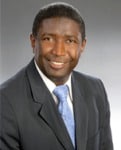Jamaican Government Urged to Consider Diaspora Vote
KINGSTON, Jamaica – United States-based Economist, Professor Paul Romer, has suggested that the Jamaican Government look at including overseas nationals in the democratic process, by allowing them to vote by absentee ballot.
Professor Romer, who was delivering the Planning Institute of Jamaica’s (PIOJ) 2009 Dialogue for Development Lecture recently, at the Jamaica Pegasus Hotel in Kingston, said that the move will help to strengthen the country’s democratic system.
“So what you could do by allowing for absentee voting is to take the very substantial Diaspora of Jamaicans, who live in other parts of the world, who have high levels of formal education and also have experience with other systems… (and) use them as resources in making your democracy more efficient.
“You can use them as a way to change the nature of political competition between your parties in a way which addresses their concerns, their awareness about possibilities…this could be a way of bringing in very quickly, a large quantity of human capital,” he stated.
A Senior Fellow at the Stanford Centre for International Development at Stanford University, Professor Romer further posited that the inclusion of the large, educated grouping as part of the democratic process will change the way politicians compete for votes, which ultimately affects the detailed rules regarding public spending, investments, monetary policy, among others.
Although there are now no provisions for overseas nationals to vote while they are residing abroad, the Government has moved to deepen and strengthen linkages with the Diaspora, and has put structures in place to include them in the country’s political and economic affairs.
A bipartisan parliamentary committee on Diaspora affairs, which has been established to facilitate public discussion on issues affecting Jamaicans living overseas, had its first meeting at Gordon House on December 3.
The committee will hear submissions on matters related to governance, including constitutional review of the issue of dual citizenship, deportation, and terms under which Jamaicans are deported, and obstacles to support given by the Diaspora for local causes.
The PIOJ launched the Dialogue for Development Lecture series in 2001 to engage civil society in dialogue and provide a forum in which the PIOJ could solicit the participation of the wider society in matters relating to the economic, environmental and social development of Jamaica.



